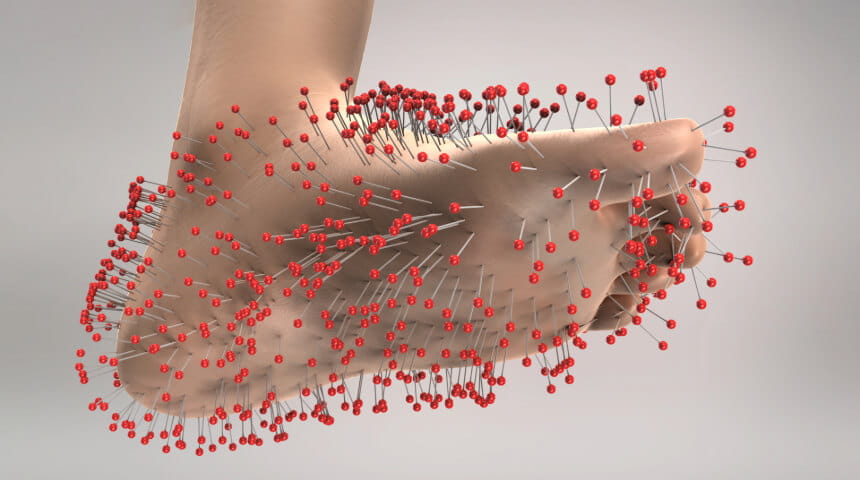As the brain ages, it’s common to have a little more trouble remembering names, dates or why you opened the refrigerator door. But before you chalk up your memory loss to advanced years – or, worse, the onset of dementia — consider another culprit: Sleep apnea.
Interrupted air flow while sleeping has long been associated with a higher risk of stroke – 70 percent of stroke or mini-stroke patients also have sleep apnea. Now research is accumulating that shows those with sleep apnea also have a significantly higher risk for problems with cognition, an umbrella term for all the mental processes that allow people to think, learn, perceive and remember.
In other words, sleep apnea can limit your ability to absorb or comprehend ideas. Over time, chronic sleep deprivation can make such cognitive changes irreversible — a condition called dementia.
Why You Need Sleep
As you sleep, your brain processes and consolidates information learned during the day while also clearing out potentially dangerous beta amyloid proteins (which form clusters, called plaques, in the brains of those with Alzheimer’s disease). Studies have found that sleep deprivation can increase the amount of beta amyloid in the brain.
The brain accomplishes this work as it repeats a four-stage cycle every 90 to 120 minutes. During each stage, different chemicals become activated and deactivated to coordinate rest and recovery.
While sleep needs vary among adults, experts generally recommend seven to nine hours per 24-hour cycle to allow the brain sufficient time to rest and recharge. When you awake after getting adequate sleep, you are more alert, focused and better able to recall information learned previously. In addition to cognitive effects, adequate sleep boosts energy levels and immune function.
Lack of sleep, on the other hand, can lead to decreased focus, impaired memory and reduced problem-solving abilities as the brain’s un- or under-rested neurons struggle to function properly.
If your body needs eight hours of sleep a night and you get only six, you have accumulated two hours of “sleep debt.” In small amounts, you can pay off your sleep debt with naps or longer sleeps on weekends. But it’s harder to recover from prolonged sleep deprivation, which increases risk of diabetes, hypertension, heart disease, stroke and dementia. In other words, while the occasional all-nighter won’t kill you, chronic sleep deprivation may result in diseases that can.
What Is Sleep Apnea?
Obstructive sleep apnea, the most common form of sleep-disordered breathing, occurs when the upper airways collapse partially or completely at intervals during sleep. In the United States, this disorder affects about 22% of men and 17% of women. Those most likely to develop obstructive sleep apnea have one or more additional conditions, including:
- Overweight
- Congestive heart failure
- Atrial fibrillation
- Type 2 diabetes
Patients rarely realize they have sleep apnea, although others in the household may have suspicions. That’s because partners often observe interruptions in their loved one’s breathing during the night, and other household members may be aware of loud snoring. Both are primary symptoms of sleep apnea, along with daytime sleepiness.
Instead, patients often suspect early onset dementia when they come in for cognitive testing. While that may be true in some cases, just as often they are suffering from untreated sleep apnea. Sometimes they’ve already received that diagnosis but rejected the most common treatment – wearing a device called a continuous positive airway pressure, or CPAP, machine while sleeping.
Why C-Pap Works
A CPAP machine typically consists of three parts: a mask that creates a seal over your nose and mouth or just your nose; a hose that connects the mask to the machine, and the small tabletop machine that plugs into a wall outlet. The device works by delivering a continuous flow of pressurized air through the mask while you sleep. The added pressure keeps your airways from collapsing, allowing you to sleep normally and wake up feeling rested.
You may be wondering: If CPAP is a cure for sleep apnea, why would anyone reject it? Comfort and convenience are the main reasons. Some patients were fitted for a CPAP previously but stopped wearing it for reasons of discomfort. Those patients need to return to their prescribing doctor for help getting a better-fitting mask or even a prescription for a new machine because, over time, the devices are becoming smaller and more comfortable. Some are now just tubes under the nose!
So if you are suffering from sleep apnea – or others suspect you may be – see a medical professional and get it treated right away. You will see immediate benefits from waking rested and ready for the day. And you’ll improve your health long-term by reducing your risk of dementia, stroke, heart disease and other potentially deadly conditions.
Choose to Stay in Touch
Sign up to receive the latest health news and trends, wellness & prevention tips, and much more from Orlando Health.
Sign Up





